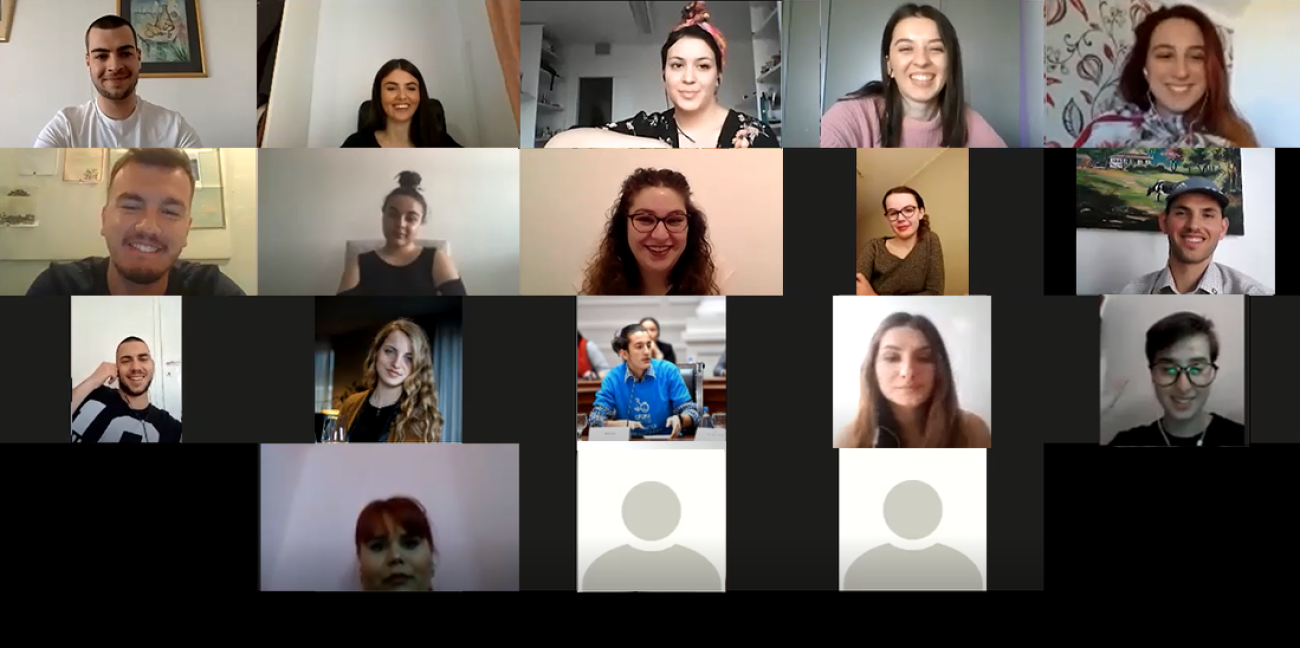In response to the pandemic, 3 promising mentees, part of the mentorship program of the joint project “Empowering Youth for a Peaceful, Prosperous and Sustainable Future in Kosovo” organized a virtual series of discussions on a regional level titled “Walking Through the Western Balkans” with a selected team of young men and women from different backgrounds. The participants discussed the shared challenges of youngsters in the region, including family relations, youth engagement, education, employment, and migrations.
Nejira Pašić was one of the participants of this virtual regional activity, who felt inspired to dig deeper into social issues and expand the conversation through writing. Read her blog below:
The well-known obstacle often encountered by the youth of the Western Balkans is the lack of residential freedom and independence. This issue is widely recognized across the region and is being discussed amongst peers on a daily basis. It just so happened that this particular issue was brought up during one of the virtual discussions of “Walking Through the Western Balkans”, as a part of the joint project funded by the Peacebuilding Fund. Having heard all the various opinions, stances, and experiences from my colleagues during this session, I realized that the roots of this phenomenon are multiple, and that there are definitely more external factors that contribute to the stagnation towards the resolution of this problem.
Starting from Bosnia and Herzegovina – the statistics on youth who still reside in their family homes up to the age of 30, are absolutely devastating. It was reported that over a quarter of a million young people do not live on their own, which is a defeating number considering that it has a population of approximately three million individuals in total (bhrt.ba, 2020). My colleagues had confirmed that the situation in the region does not differ to a large extent, and the contributing internal and external factors in all places of the Western Balkans overlap. Both mentality and circumstances have a role in our futures.
Firstly, one must mention the socio-psychological factor which represents the core of all internal factors. This factor implies and takes into account the parental figures, the child’s primordial need to not disappoint their care-takers, and the universal desire to be safe. The connection between the three is quite blatant. Due to the need for safety, the child clings on to its parents and tries to remain with them in order to be taken care of. The primordial need for parental satisfaction and the parental figures themselves are tightly tied to mentality and tradition. The overall Balkan tradition is connected to children growing up in their parents’ homes and once they are married, they proceed to live under one roof, thereby creating a type of community. This tradition can be related to multiple explanations, two of which are patriarchy and economy- which represent the external factors.
Patriarchy is a simple explanation as it has within our tradition created an environment where the son inherits the home and brings his wife to his home. This tradition then lives on through his children. The economic one is also quite obvious. Due to the unsustainable economy and low wages, families in this region had not been able to afford multiple houses for their children, so they stayed in one home. This economic factor can absolutely be drawn even today. Although the economy is more stable, the individual financial situations – hereby emphasizing not only low wages, but the lack of employment opportunities for youth to begin with – are very much present and relevant. As the aforementioned statistics portray, youth today are still very much tied to their parents.
However, not all is that gloomy. As the famous BiH psychologist, Čedomir Novaković, said:
A new factor is the international migration wave. It is also one of the catalyst or animators of migration in our region. A large number of the youth falls under the mass behaviour influence.(bhrt.ba, 2020)
Essentially, this means that the new globalization wave of migration is influencing young people to pursue education, jobs, even lives abroad and away from their family homes. Affordable student mobility in the WB region has come to life in the recent half a decade and is currently awakening the youth’s need to own their independence and freedom, to experience self-sustainability, and to break from the social, psychological, primordial, and economic cage in which they’ve been nurtured.
Nejira is a student of Political Science and International Relations at the Sarajevo School of Science and Technology. Social psychology researcher, labor rights activist, and charity fundraiser.



















